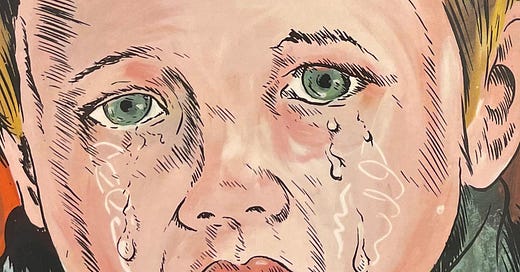Since October 7, I’ve held dozens of literary events and meetings. I do a lot of performances in peaceful days, too, and I always get excited when I read one of my stories to an attentive, curious audience. But since the war started, I’ve been performing a lot more. Not only for literary crowds, but also for survivors, evacuees, social workers, ER doctors, patients in psychiatric wards, and elderly residents of retirement homes. Something about the pain, the loss, and the fear of what might happen makes these encounters both ludicrous and meaningful. Ludicrous—because what exactly is the point telling a group of children who’ve lost their families and friends a made-up story about the friendship between a boy and his piggy-bank? And meaningful—because in the cruel, violent ocean of events that began raging on October 7, people will try to grasp at any piece of hope, humanity and emotion so as not to drown: even in a story. It’s hard to describe the sometimes-heavy sometimes-uplifting atmosphere at these slightly bizarre events. But I gave it a try.
When I shake the hand of the singer with the saddest songs in the world, my palm is clammy from excitement. I’ve been listening to his music for years. All his songs tell stories that can crush your heart, with melodies that are always simple and genuine. Israeli Blues. And tonight, I’m fortunate enough to be sharing a stage with him.
Our modest performance takes place in the public library of a smallish city. The librarian who invited us is friendly and helpful, and she tells us that all the libraries received a directive that morning explaining that since we’re in a time of war, they must be sure not to hold any events that are too sad. “What do you mean, too sad?” panics the singer with the saddest songs in the world; he clearly feels a little threatened. “Art is life, and life is a sad thing,” he explains. “You’re right,” the librarian replies, trying to sound reassuring. “You’re absolutely right. But the directive didn’t say the show can’t be sad, just that it shouldn’t be too sad.”




